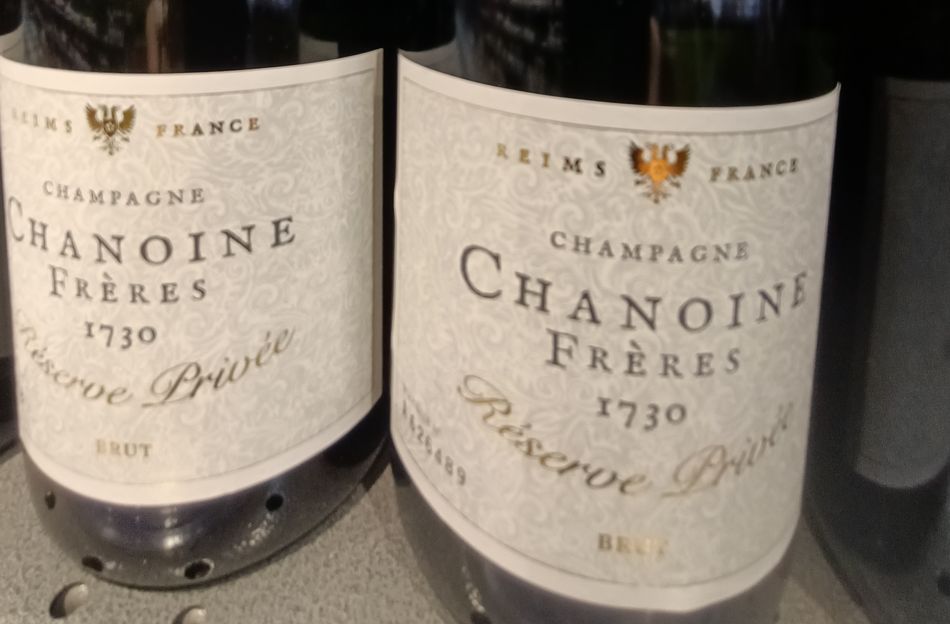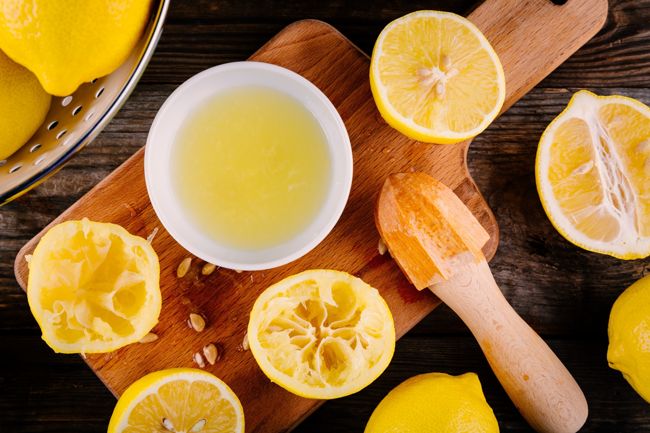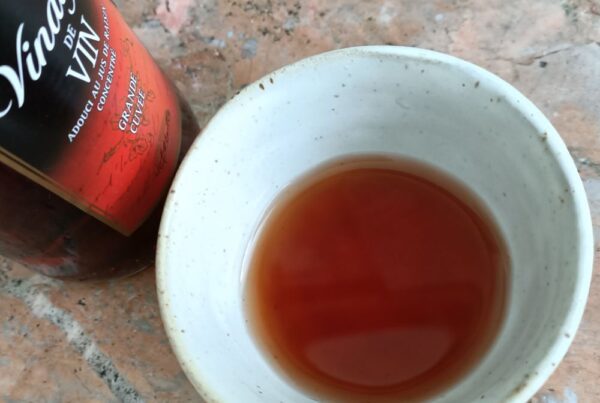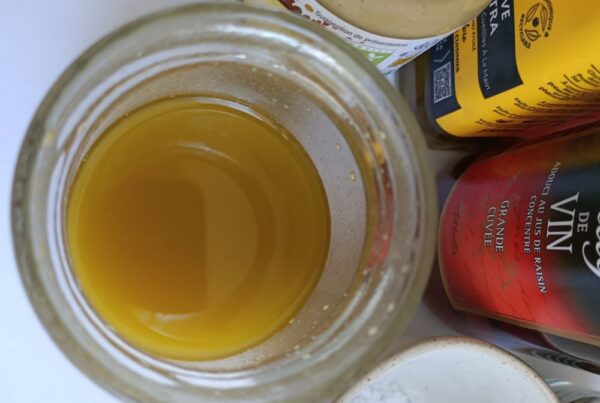If you find yourself mid recipe and realize that you need white wine for your dish and don’t have it, or don’t wish to use it, fear not, there are lots of great substitutes that you can use instead!

Contents
Role of wine in cooking
Adding wine to a dish can add acidity, sweetness and depth of flavor. It also adds moisture, and is often used to de-glaze (remove the sticky bits stuck to the pan).
So, finding a good alternative can be important to maintain the balance and flavor of a particular recipe.
When wine is added to a recipe, such as soups, stews, pasta sauces and risottos, it is typically added to the pan and then reduced by at least half (if not more) by boiling, with additional ingredients added later.
This process of reducing the wine down burns off the alcohol while concentrating the wine’s rich flavors. It enhances the overall dish by adding an extra layer of flavor.

Substitute white wine with acidity
One good substitute for white wine is to use another acidic ingredient, such as vinegar or lemon juice. Light-colored vinegars, such as white wine vinegar, rice vinegar, or apple cider vinegar will work well.
In my experience, both lemon juice and vinegars work really well as substitutes.
Avoid more astringent vinegars, like distilled white vinegar, if possible, as they may add too much acidity.
Most vinegars will be excellent substitutes, but do take the color of the vinegar into account.
Vinegars that are dark in color, such as a dark balsamic or sherry vinegar, can affect the final color of the dish.
It is also worth noting that the acidity levels in vinegar and lemons are much higher than that of wine.
So, when substituting vinegar or lemon for white wine, you will need to take the acidity into account by using at least half or less vinegar or lemon (than the recipe requires in wine), with the rest of the liquid made up with water.

Substitute with another alcohol
Another great substitute for wine in cooking is a different type of alcohol. Where possible, use something with an equivalent amount of alcohol to that of wine.
A fortified white wine, like Vermouth, is a great option if you have some.
Champagne or any sparkling white or rosé wine can also be used as a substitute (personally, I would prefer to drink the Champagne and make do with vinegar).
A lightly colored rosé can also make a good substitute for white wine.

Just add water … or stock/broth with some acidity
Another option is to swap in water or stock/broth, with a squeeze of lemon or dash of vinegar to add some acidity.
This option works particularly well where the recipe doesn’t require reducing the wine, but where you need to have the liquid.
Add one part water and one part broth in lieu of wine. Use low-sodium broth if possible or your dish may taste too salty.
Water alone will work if you are really in a pinch, but broth is preferable as it will add both liquid and flavor.

Fruit juice with some acidity
A final option is to use grape juice or apple juice.
Cranberry juice can also be used, but this is a better swap for red wine rather than white wine as it may unfavorably change the colour of the dish.
Again, add a dash of vinegar or squeeze of lemon for acidity if possible.
White wine alternatives for specific recipes

Sauces and Reductions
For recipes where white wine is used to deglaze pans or create reductions, you can use a non-alcoholic substitute like chicken or vegetable broth mixed with a splash of vinegar or lemon juice.
This combination can mimic the acidity and flavor-enhancing properties of white wine without the alcohol content.
Seafood Dishes
When cooking seafood dishes that call for white wine, use fish or seafood broth as a substitute.
The broth will add depth of flavor and complement the seafood without overpowering it.
Alternatively, you can use a combination of water and lemon juice to maintain the dish’s freshness.
Creamy Dishes
In creamy sauces or dishes, like Alfredo or creamy pastas, you can substitute white wine with a combination of broth and a splash of lemon juice or vinegar to balance the richness of the dish.
Alternatively, you could opt for a non-alcoholic white wine for a more authentic flavor.
Marinades
For marinades that call for white wine, you can replace it with a mixture of vinegar or citrus juice, such as lemon or lime, combined with herbs and spices.
This combination will tenderize the meat or vegetables while imparting flavor without the need for alcohol.
Soups and Stews
For hearty soups and stews, white wine can often be substituted with additional broth or stock to maintain the desired liquid volume and flavor profile.
You can enhance the flavor by adding a splash of vinegar or lemon juice to mimic the acidity of the wine.
Braising
When braising meats or vegetables, consider using broth or stock as a substitute for white wine.
This will provide moisture and depth of flavor to the dish, while a touch of vinegar or citrus juice can help balance the flavors.
Baking
In recipes that call for white wine in baking, such as certain bread or cake recipes, you can simply omit the wine or replace it with an equal amount of water or fruit juice, depending on the desired flavor profile of the dish.
Salad Dressings
For salad dressings that require white wine, consider using a combination of vinegar or citrus juice with a small amount of water or broth to achieve a similar tangy flavor. Adjust the ratio to suit your taste preferences.
Asian Cuisine
For Asian-inspired dishes that call for white wine, you can substitute it with rice wine or sake, which will contribute a similar depth of flavor.
Alternatively, you can use a combination of broth and rice vinegar to achieve a similar effect.
Italian Cuisine
In Italian recipes that call for white wine, consider using a combination of chicken or vegetable broth with a splash of vinegar or lemon juice.
This will help replicate the acidity and flavor profile of white wine without altering the dish’s overall taste.
French Cuisine
In French cooking, where white wine is often used in sauces and braises, consider using a combination of broth and a small amount of vinegar or lemon juice as a substitute.
This will help maintain the dish’s complexity and balance of flavors.

Read with confidence: I am a certified wine expert (WSET L3).




